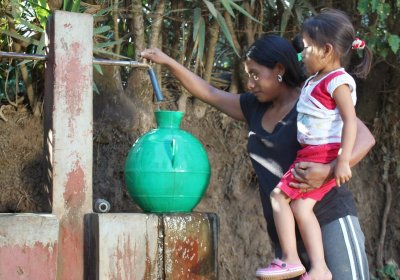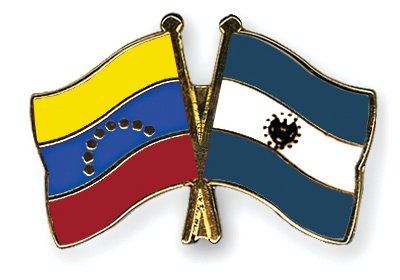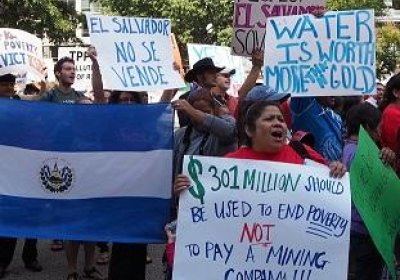 Photo: CISPES.org.
Hundreds of thousands of people filled the streets of San Salvador on May 1 to celebrate May Day and the victories of the working class. Marchers raised demands for justice, equality and self-determination, CISPES.org said on May 4.
Photo: CISPES.org.
Hundreds of thousands of people filled the streets of San Salvador on May 1 to celebrate May Day and the victories of the working class. Marchers raised demands for justice, equality and self-determination, CISPES.org said on May 4.
El Salvador
 Photo: CISPES.org.
Hundreds of thousands of people filled the streets of San Salvador on May 1 to celebrate May Day and the victories of the working class. Marchers raised demands for justice, equality and self-determination, CISPES.org said on May 4.
Photo: CISPES.org.
Hundreds of thousands of people filled the streets of San Salvador on May 1 to celebrate May Day and the victories of the working class. Marchers raised demands for justice, equality and self-determination, CISPES.org said on May 4.
During the final session of El Salvador's outgoing parliament on April 29, right-wing parties blocked a vote to ratify a constitutional reform that would have enshrined water and food as human rights. In doing so, the bloc of Nationalist Republican Alliance (ARENA), National Conciliation (PCN), and Christian Democrat (PDC) parties demonstrated their support for elite business interests over the health and wellbeing of the Salvadoran people.
The United States is threatening the small Central American country of El Salvador with financial repercussions for supporting Venezuela's campaign for the repeal of US sanctions against the country. The left-wing Farabundo Marti National Liberation Front (FMLN) government of Salvador Sanchez Ceren, together with all of countries of Latin America and the Caribbean, has called on US President Barack Obama to repeal his executive order declaring Venezuela to be a “threat” to US national security.
 President Nicolas Maduro of Venezuela began his visit to Panama City for the Summit of the Americas with a visit to the impoverished neighbourhood of El Chorrillo to lay a wreath at the monument to those killed by the US bombing of the community during the 1989 US invasion of Panama.
The seventh Summit of the Americas, held in Panama City on April 10 and 11, was widely hailed as a victory for left-leaning and progressive forces in the region, particularly Venezuela and Cuba.
President Nicolas Maduro of Venezuela began his visit to Panama City for the Summit of the Americas with a visit to the impoverished neighbourhood of El Chorrillo to lay a wreath at the monument to those killed by the US bombing of the community during the 1989 US invasion of Panama.
The seventh Summit of the Americas, held in Panama City on April 10 and 11, was widely hailed as a victory for left-leaning and progressive forces in the region, particularly Venezuela and Cuba.
- Previous page
- Page 2
- Next page




